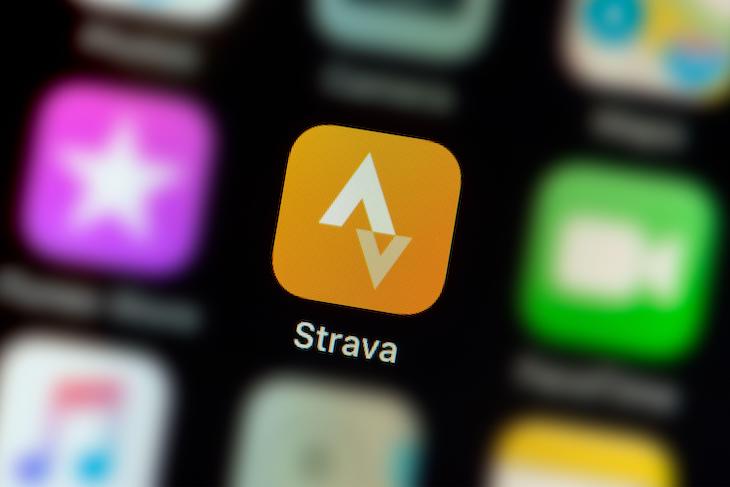When I first started running 25 years ago, it was the simplicity that captured my heart. There were no complicated techniques to master, no ghastly membership fees or extortionate equipment to shell out on. You just needed to buy a pair of shoes, get out there in the fresh air and put one foot in front of another, more swiftly than usual.
Strava is basically a cult
In return for this modest outlay and effort, you were treated to an avalanche of physical and emotional health benefits. As you ran, you could truly live in the moment, bask in the solitude and enjoy the connection with nature. It felt like such a beautiful and simple trade. I even wrote a book about it, called Running: Cheaper Than Therapy.
But for many runners, it’s become a complicated and costly hobby because companies are greedily cashing in on this booming trend by convincing us we need to part with our cash for an exhausting array of gadgets, garments and apps. And, erm, books.
Now, two titans of the running market have fallen out. Strava, a fitness tracking app, and Garmin, a smartwatch manufacturer, are panting their way to court after Strava claimed that Garmin infringed on two of Strava’s patented features. The upshot of the falling out might mean that people who use Strava and Garmin together won’t be able to track their runs, a prospect that has many runners up in (skinny) arms. A running influencer on TikTok said that it feels ‘like Mom and Dad fighting’. Another went as far as wondering if it’s ‘time to give up running’.
But maybe a little less technology would be a good thing for runners? Strava has become so influential that it’s known as the ‘Instagram of running’, but it’s actually much more overbearing than that. For many users, it’s basically a cult.
Runners quip that ‘if it’s not on Strava, it didn’t happen’. They jog in Strava T-shirts and sip their post-run coffee from Strava mugs. I’ve lost count of the times a stranger at a running event has shouted at me to ‘give it some for Strava’. Some people even upload their wedding photos to the app.
Rather than living in the moment as they jog, Strava addicts are forever thinking about getting social media clout for their runs. They can’t enjoy their session because they’re waiting to share their stats and the obligatory smug post-run selfie. Rather than benefitting from the solitude of running, they’re worrying about the crowd on Strava and how much they will impress them.
It’s surprising to think that there was once a time when the runner would keep the minutiae of their jogs and weekly mileage to themselves, but now our social media feeds feature glowing, red faces of a post-run friend, eagerly sharing their complex split stats. Saturday mornings can be a tsunami and I’m not sure anyone finds it as interesting as runners hope.
For some people, Strava can foster a sense of community – a wholesome way of connecting with other runners. Some insist that sharing their runs on Strava encourages them to run more and to run better. So far, so healthy, but as Facebook and Instagram have shown, when we start sharing parts of our lives with others, it can detract from the joy of those experiences and make us obsessed with the toxic trend of comparison. As with social media, we often don’t realise the effect it’s having on us.
Overly tracking your running progress can set up a rollercoaster ride of soaring ego and crushing disappointment. Sharing the details with others only intensifies those highs and lows. Strava encourages us to tie a workout’s value to public perception and kudos, rather than personal enjoyment. So even if you stick faithfully to the routes you take on your morning run, you’ll still be in danger of losing your way.







Comments